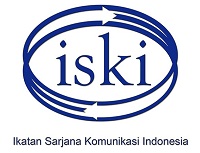Projection of Solar Energy Consumers as Renewable Energy in Indonesia
Abstract
Keywords
Full Text:
PDFReferences
Abu-Rumman, G., Khdair, A. I., & Khdair, S. I. (2020). Current status and future investment potential in renewable energy in Jordan: An overview. Heliyon, 6(2), e03346. https://doi.org/https://doi.org/10.1016/j.heliyon.2020.e03346
Afriyanti, Y., Sasana, H., & Jalunggono, G. (2020). Analisis Faktor-Faktor yang Mempengaruhi Konsumsi Energi Terbarukan di Indonesia. DINAMIC: Directory Journal of Economic, 2(3), 865-884.
Akermi, R., & Triki, A. (2017). The green energy transition and civil society in Tunisia: Actions, motivations and barriers. Energy Procedia, 136, 79–84. https://doi.org/10.1016/j.egypro.2017.10.288
Ambepitiya, K. (2015). Role of Communication Technology and Indigenous Knowledge in Promoting Climate Change Adaptation. January 2015.
Amelia, N. N., & Kusumawanto, A. (2021). A review of energy use in a sustainable city model. IOP Conference Series: Earth and Environmental Science, 764(1), 12025. https://doi.org/10.1088/1755-1315/764/1/012025
Arafah, W., Nugroho, L., Takaya, R., & Soekapdjo, S. (2018). International Journal of Energy Economics and Policy Marketing Strategy for Renewable Energy development In Indonesia Context Today. International Journal of Energy Economics and Policy |, 8(5), 181–186. http:www.econjournals.com
Bayuaji Kencana, Budi Prasetyo, Hanny Berchmans, Imas Agustina, Puteri Myrasandri, Raymond Bona, Richard Randy Panjaitan, & Winne. (2018). Panduan Studi Kelayakan Pembangkit Listrik Tenaga Surya (PLTS). Indonesia Clean Energy Development II, November, 68.
Debora Indriani, I. A., Rahayu, M., & Hadiwidjojo, D. (2019). The Influence of Environmental Knowledge on Green Purchase Intention the Role of Attitude as Mediating Variable. International Journal of Multicultural and Multireligious Understanding, 6(2), 627. https://doi.org/10.18415/ijmmu.v6i2.706
Ding, H., Zhou, D., & Zhou, P. (2020). Optimal policy supports for renewable energy technology development: A dynamic programming model. Energy Economics, 92, 104765. https://doi.org/https://doi.org/10.1016/j.eneco.2020.104765
Fachruddin, A. (2019). Journalism Today. Kencana. https://books.google.co.id/books?id=EVm-DwAAQBAJ
Fandeli, C. (2018). Bisnis konservasi, pendekatan baru dalam pengelolaan sumberdaya alam dan lingkungan hidup. Gadjah Mada University Press Yogyakarta.
Febriani, N. S., & Avicenna, F. (2022). Application of Attribution Theory to Understand Renewable Energy Users’ Perceptions. Komunikator, 14(1), 89–103. https://doi.org/10.18196/jkm.12936
Harrington, E., Athavankar, A., & Hsu, D. (2020). Variation in rural household energy transitions for basic lighting in India. Renewable and Sustainable Energy Reviews, 119, 109568. https://doi.org/https://doi.org/10.1016/j.rser.2019.109568
Jabeen, G., Yan, Q., Ahmad, M., Fatima, N., & Qamar, S. (2019). Consumers’ intention-based influence factors of renewable power generation technology utilization: A structural equation modeling approach. Journal of Cleaner Production, 237, 117737. https://doi.org/https://doi.org/10.1016/j.jclepro.2019.117737
Kananda, K. (2017). Studi Awal Potensi Energi Surya Wilayah Lampung: Studi Kasus Kampus Institut Teknologi Sumatera (ITERA) Menuju Smart Campus. Journal of Science and Applicative Technology, 1(2), 75–81.
Kowalska-Pyzalska, A. (2019). Do Consumers Want to Pay for Green Electricity? A Case Study from Poland. In Sustainability (Vol. 11, Issue 5). https://doi.org/10.3390/su11051310
Kumara, N. S. (2010). Pembangkit listrik tenaga surya skala rumah tangga urban dan Ketersediaannya di Indonesia. Teknologi Elektro, 9(1), 68–75.
Liebman, A., Reynolds, A., Robertson, D., Nolan, S., Argyriou, M., Sargent, B. (2019). Green Finance in Indonesia. In: Sachs, J., Woo, W., Yoshino, N., Taghizadeh-Hesary, F. (eds) Handbook of Green Finance. Sustainable Development . Springer, Singapore. https://doi.org/10.1007/978-981-13-0227-5_5
Murshed, M. (2020). Are Trade Liberalization policies aligned with Renewable Energy Transition in low and middle income countries? An Instrumental Variable approach. Renewable Energy, 151, 1110–1123. https://doi.org/https://doi.org/10.1016/j.renene.2019.11.106
Ng, W. Z., Obon, A. A., Lee, C. L., Ong, Y. H., Gourich, W., Maran, K., ... & Chan, E. S. (2022). Techno-economic analysis of enzymatic biodiesel co-produced in palm oil mills from sludge palm oil for improving renewable energy access in rural areas. Energy, 243, 122745.
Nurcahyanto, Simsek, Y., & Urmee, T. (2020). Opportunities and challenges of energy service companies to promote energy efficiency programs in Indonesia. Energy, 205, 117603.
Paço, A. do, Shiel, C., & Alves, H. (2019). A new model for testing green consumer behaviour. Journal of Cleaner Production, 207, 998–1006. https://doi.org/https://doi.org/10.1016/j.jclepro.2018.10.105
Rathore, P. K. S., Chauhan, D. S., & Singh, R. P. (2019). Decentralized solar rooftop photovoltaic in India: On the path of sustainable energy security. Renewable Energy, 131, 297–307. https://doi.org/https://doi.org/10.1016/j.renene.2018.07.049
Ropuszyńska-Surma, E., & Węglarz, M. (2018). Profiling End User of Renewable Energy Sources among Residential Consumers in Poland. In Sustainability (Vol. 10, Issue 12). https://doi.org/10.3390/su10124452
Sharifi, M., Khazaei Pool, J., Jalilvand, M. R., Tabaeeian, R. A., & Ghanbarpour Jooybari, M. (2019). Forecasting of advertising effectiveness for renewable energy technologies: A neural network analysis. Technological Forecasting and Social Change, 143, 154–161. https://doi.org/https://doi.org/10.1016/j.techfore.2019.04.009
Sovacool, B. K. (2013). A qualitative factor analysis of renewable energy and Sustainable Energy for All (SE4ALL) in the Asia-Pacific. Energy Policy, 59, 393–403. https://doi.org/https://doi.org/10.1016/j.enpol.2013.03.051
Sunitiyoso, Y., Mahardi, J. P., Anggoro, Y., & Wicaksono, A. (2020). New and renewable energy resources in the Indonesian electricity sector: a systems thinking approach. International Journal of Energy Sector Management.
Wogu, J., Chukwu, C., Chinedum, J., Ugwulor-Onyinyechi, C., & Nwankiti, C. (2019). Impact of Media Breast Cancer Awareness Campaign on the Health Behaviour of Women in Southeast Nigeria. Global Journal of Health Science, 11, 79. https://doi.org/10.5539/gjhs.v11n5p79
DOI: https://doi.org/10.29313/mediator.v15i2.10497
Refbacks
- There are currently no refbacks.

This work is licensed under a Creative Commons Attribution 4.0 International License























